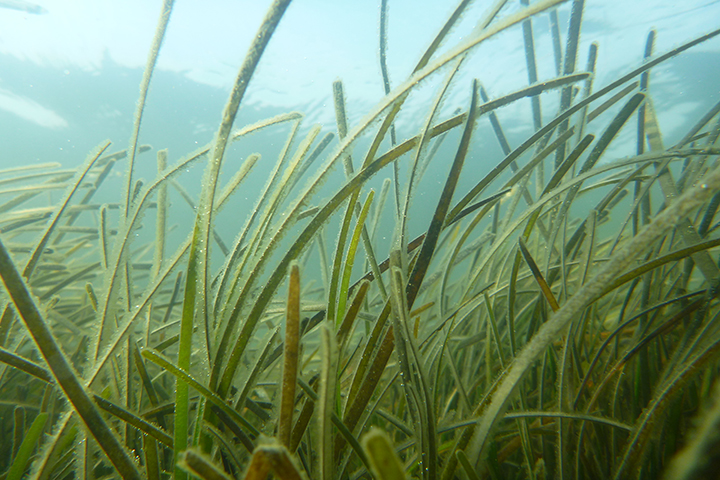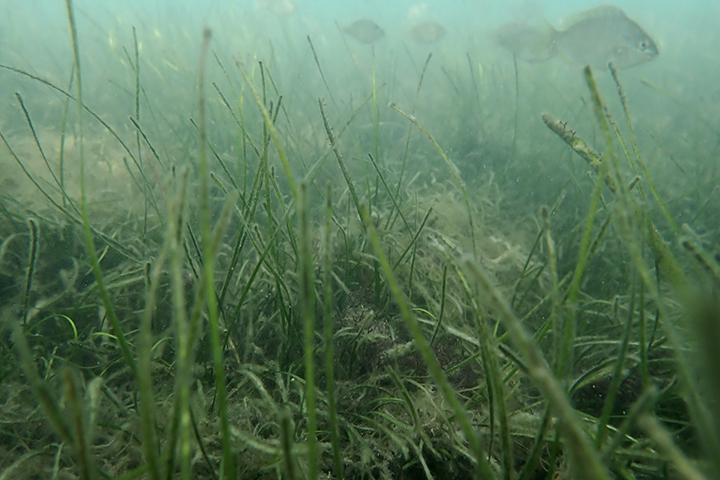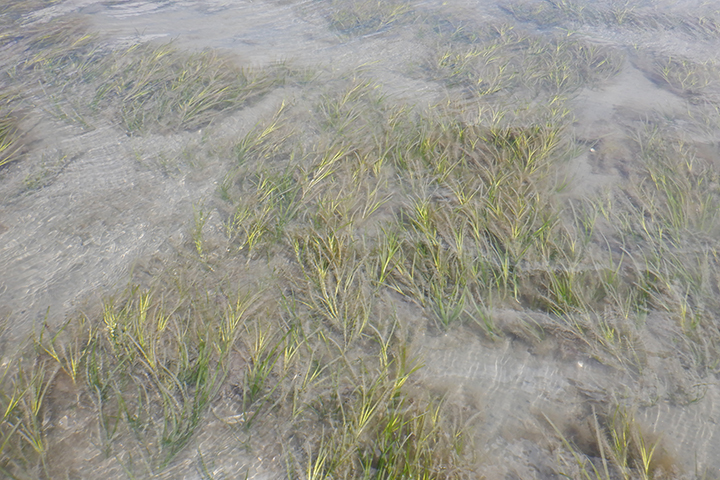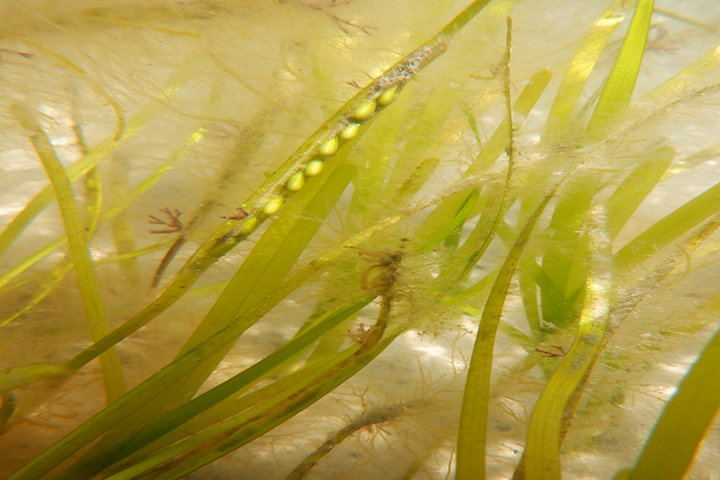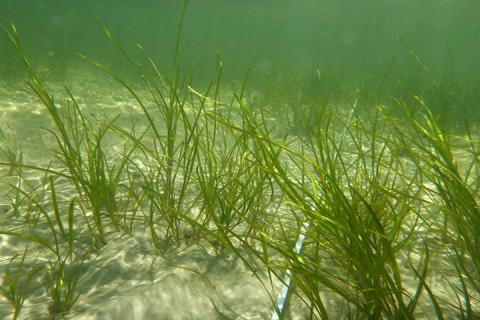
By comparing North Carolina and Virginia eelgrass populations, this project will provide the datasets and analyses needed to inform restoration and management decisions that enhance eelgrass resilience to climate change.
In the lower Chesapeake Bay, Virginia, elevated water temperatures in recent years have resulted in large scale diebacks of entire historically stable eelgrass meadows (Zostera marina). At the same time, eelgrass populations in North Carolina, which are growing at the southern limits of their distribution, have not experienced the same diebacks and appear to be more resilient to temperature stress. Through a series of workshops in 2022 along the mid-Atlantic, scientists and coastal resource managers identified the urgent need for novel approaches to respond to eelgrass loss in the face of rapidly warming water temperatures. One such novel approach could take advantage of this difference in resilience to temperature stress exhibited by these eelgrass meadows.
The objectives of this project are to compare resiliency traits of eelgrass populations in North Carolina and Virginia, identify specific meadows in North Carolina that could serve as seed donor beds, and conduct reciprocal test restoration of North Carolina and Virginia eelgrass seeds. This project will lead to new protocols to incorporate temperature-resilient eelgrass into eelgrass restoration methodology. By bringing together and coordinating a network of the intended users from reserves, state agencies, and Chesapeake Bay nonprofits, the project aims to develop the datasets, analyses, and specific site criteria needed to develop and implement restoration strategies for this iconic species.
An introduction to "Evaluating and Enhancing Eelgrass Resiliency and Restoration Potential in a Changing Climate," a collaborative research project funded in 2022 by the NERRS Science Collaborative.
